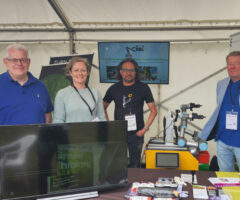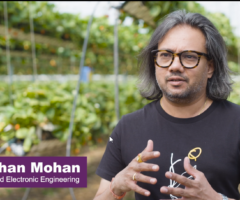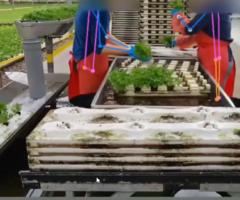The Versatile RobotX team based at the University of Essex and leading grower JEPCO have worked together for the past two years to test the best way to use robots to grow and harvest lettuces at scale.
Their project titled SCARLETT – SCAlable, structured and Resource efficient indoor robotic harvesting of LETTuce – has carefully reviewed how every element of the farming production process can be optimised and adapted for the integration of robotics.
The feasibility project received funding from UKRI as part of Defra’s Farming Innovation Programme, which awarded more than £8m to a range of innovative new farming concepts, due to its potential to transform food production.
The project, managed by Robotics Research Assistant Roberto Mendívil Castro, can potentially increase production efficiency, enabling farms to grow with dwindling labour and facilitate 52-week production in the UK.
Jonathan Dove, General Manager at JEPCO, said: “This was an ambitious project that has the potential to transform how produce is moved and handled in our Greenhouse operations by bringing in robotics where repetitive tasks and tasks where staff are underutilised makes absolute sense.”
“This feasibility project was very timely, as the system we currently use has not generally considered automation for the handling and movement of crops.”
The partnership has utilised Essex’s expertise in machine learning based visual detection, classification and point cloud analysis of crops; dextrous robotic manipulation using a range of tools including soft hand, magnetic gripper and cutting-knives to automate transplanting, placing, cutting and packaging tasks; and mobile robotics.
Dr Vishwanathan Mohan, CTO of Versatile RobotX and Senior Lecturer at the School of Computer Science and Electronic Engineering at the University of Essex said: “The redesigning of harvesting processes and embedding of robotics and artificial intelligence has delivered higher-efficiency in food production which can be used for lettuces and then extended to other produce.
“We hope our solution will mitigate labour shortage faced by the industry, increase production to feed the population while being resource efficient and more environmentally aware.”


